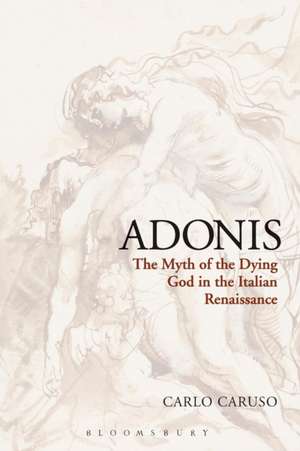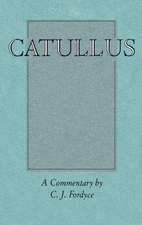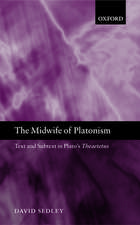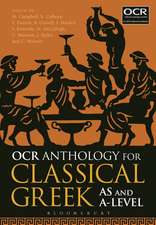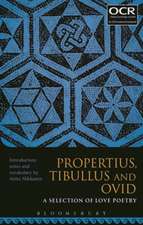Adonis: The Myth of the Dying God in the Italian Renaissance
Autor Carlo Carusoen Limba Engleză Paperback – 17 iun 2015
| Toate formatele și edițiile | Preț | Express |
|---|---|---|
| Paperback (1) | 256.85 lei 6-8 săpt. | |
| Bloomsbury Publishing – 17 iun 2015 | 256.85 lei 6-8 săpt. | |
| Hardback (1) | 773.39 lei 6-8 săpt. | |
| Bloomsbury Publishing – 4 dec 2013 | 773.39 lei 6-8 săpt. |
Preț: 256.85 lei
Preț vechi: 295.07 lei
-13% Nou
Puncte Express: 385
Preț estimativ în valută:
49.15€ • 51.13$ • 40.58£
49.15€ • 51.13$ • 40.58£
Carte tipărită la comandă
Livrare economică 15-29 aprilie
Preluare comenzi: 021 569.72.76
Specificații
ISBN-13: 9781474244039
ISBN-10: 1474244033
Pagini: 240
Ilustrații: c. 7 bw illus
Dimensiuni: 156 x 234 x 12 mm
Greutate: 0.33 kg
Editura: Bloomsbury Publishing
Colecția Bloomsbury Academic
Locul publicării:London, United Kingdom
ISBN-10: 1474244033
Pagini: 240
Ilustrații: c. 7 bw illus
Dimensiuni: 156 x 234 x 12 mm
Greutate: 0.33 kg
Editura: Bloomsbury Publishing
Colecția Bloomsbury Academic
Locul publicării:London, United Kingdom
Caracteristici
Relevant to many subject areas: Classical tradition; Classical reception; Renaissance studies; Literary culture of the Renaissance; Comparative mythology
Notă biografică
Carlo Caruso is Professor of Italian at the University of Durham, UK. He has published widely in the areas of the classical tradition, literature and the arts from humanism to neo-classicism, and the history of scholarship. He is the author of critical editions of Paolo Rolli, Libretti per Musica; Paolo Giovio, Ritratti, and Diomede Borghese, Orazioni Accademiche.
Cuprins
Table of contents:PrefaceIntroduction1. An ancient myth revisited: Adonis as citrus tree2. Adonis and the Renaissance idyll3. Adonis in sixteenth-century mythography 4. G.B. Marino's 'Adone' (1): From pastoral to epic poetry5. G.B. Marino's 'Adone' (2): The king's poem6. The seventeenth-century aftermathBibliographyIndex of manuscriptsIndex of names
Recenzii
Caruso's exploration of the figure of Adonis in Italian Renaissance literature is an accomplished and detailed exemplar of the variety of interpretation and afterlife of classical myths ... This is evidently an exhaustive and illuminating book ... and as such is invaluable to researchers of this period or those interested in the cultural afterlife of mythology.
Caruso's detailed study on the tradition of the myth of Adonis combines an accurate analysis of the literary texts with a rigorous examination of their sources ... [His] study is methodologically impeccable and brings new and interesting perspectives to the Renaissance and early Baroque interpretations of the Adonian myth, which no future scholarly discussion can afford to disregard.
Like a prism that splits a single ray of light into a whole spectrum, this book sheds new light on a wide range of issues in the arts, sciences and humanist thought in the Italian Renaissance. An outstanding book.
A very successful contribution to the history of the reception of antique mythology ... featuring a comprehensive and informative set of endnotes, a bibliography and a very useful index ... The book not only provides a wealth of knowledge but proposes new interpretations and substantiates them convincingly ... In both method and content this stands as an exemplary contribution to the field.
This illuminating study of the early modern revival of the Adonis myth combines careful analysis of important works by Pontano, Marino and other authors with a nuanced understanding of the intellectual milieux through which their texts circulated, in Italy and beyond. Grounded on close knowledge of ancient sources and their transmission, Adonis is an exemplary demonstration of the importance of the history of scholarship for both Latin and vernacular literature from the fifteenth to seventeenth centuries, highlighting the remarkable extent of interconnection between the arts, sciences and humanist philology in the Italian Renaissance.
Caruso's detailed study on the tradition of the myth of Adonis combines an accurate analysis of the literary texts with a rigorous examination of their sources ... [His] study is methodologically impeccable and brings new and interesting perspectives to the Renaissance and early Baroque interpretations of the Adonian myth, which no future scholarly discussion can afford to disregard.
Like a prism that splits a single ray of light into a whole spectrum, this book sheds new light on a wide range of issues in the arts, sciences and humanist thought in the Italian Renaissance. An outstanding book.
A very successful contribution to the history of the reception of antique mythology ... featuring a comprehensive and informative set of endnotes, a bibliography and a very useful index ... The book not only provides a wealth of knowledge but proposes new interpretations and substantiates them convincingly ... In both method and content this stands as an exemplary contribution to the field.
This illuminating study of the early modern revival of the Adonis myth combines careful analysis of important works by Pontano, Marino and other authors with a nuanced understanding of the intellectual milieux through which their texts circulated, in Italy and beyond. Grounded on close knowledge of ancient sources and their transmission, Adonis is an exemplary demonstration of the importance of the history of scholarship for both Latin and vernacular literature from the fifteenth to seventeenth centuries, highlighting the remarkable extent of interconnection between the arts, sciences and humanist philology in the Italian Renaissance.
Descriere
A detailed treatment of the myth of Adonis in the Italian literary culture of the Renaissance and early Baroque, one of the most interesting cases of the creative use of ancient mythology in post-Classical times.
